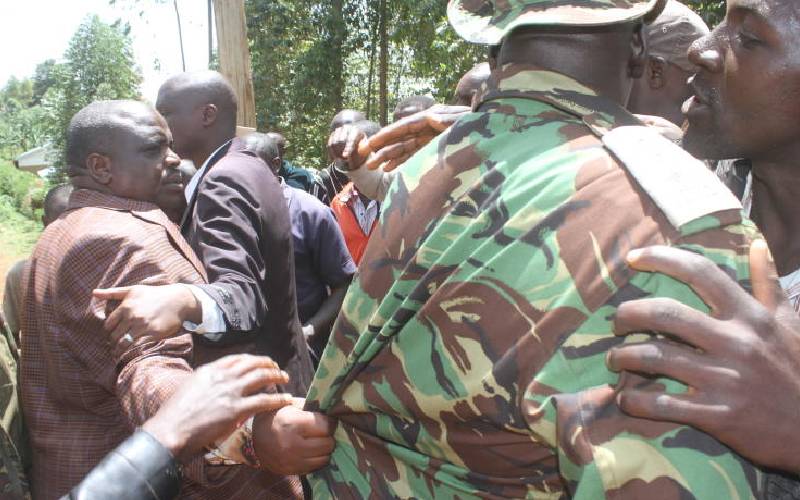×
The Standard e-Paper
Home To Bold Columnists

Police calm protesters during a previous by-election. [Sammy Omingo, Standard]
Lest we forget, one person, one vote, also called universal suffrage, hasn’t really worked for us particularly since the 1980s. I have said this before.